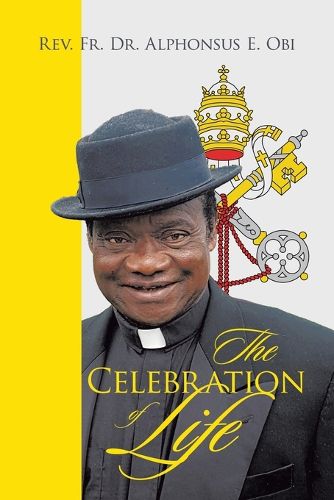Readings Newsletter
Become a Readings Member to make your shopping experience even easier.
Sign in or sign up for free!
You’re not far away from qualifying for FREE standard shipping within Australia
You’ve qualified for FREE standard shipping within Australia
The cart is loading…






This title is printed to order. This book may have been self-published. If so, we cannot guarantee the quality of the content. In the main most books will have gone through the editing process however some may not. We therefore suggest that you be aware of this before ordering this book. If in doubt check either the author or publisher’s details as we are unable to accept any returns unless they are faulty. Please contact us if you have any questions.
Why celebration of Life? It is called celebration of life in recognition of a departed member of our community and all the children of God in this world who left this world to join the creator in Heaven. Whether it is called wake or wake-keeping all gears towards the provision of a service prior to burial in a social gathering. Traditionally, this is done at the home of the deceased with the body present. Recently wakes are often performed at a funeral home or at a hall preferably chosen by the members of the deceased family. It is often a social rite which highlights the fact that the loss affects the whole group. The term "wake" originally referred to a late-night prayer vigil, which is mostly used for the social interaction. While this modern usage of the verb "wake" means to stay alert. A wake for the dead harks back to the vigil, "watch" or "guard" of earlier times. It is a misconception that people at wake are waiting in case the deceased should wake up. The term "wake" originated from the Middle English "waken".
$9.00 standard shipping within Australia
FREE standard shipping within Australia for orders over $100.00
Express & International shipping calculated at checkout
This title is printed to order. This book may have been self-published. If so, we cannot guarantee the quality of the content. In the main most books will have gone through the editing process however some may not. We therefore suggest that you be aware of this before ordering this book. If in doubt check either the author or publisher’s details as we are unable to accept any returns unless they are faulty. Please contact us if you have any questions.
Why celebration of Life? It is called celebration of life in recognition of a departed member of our community and all the children of God in this world who left this world to join the creator in Heaven. Whether it is called wake or wake-keeping all gears towards the provision of a service prior to burial in a social gathering. Traditionally, this is done at the home of the deceased with the body present. Recently wakes are often performed at a funeral home or at a hall preferably chosen by the members of the deceased family. It is often a social rite which highlights the fact that the loss affects the whole group. The term "wake" originally referred to a late-night prayer vigil, which is mostly used for the social interaction. While this modern usage of the verb "wake" means to stay alert. A wake for the dead harks back to the vigil, "watch" or "guard" of earlier times. It is a misconception that people at wake are waiting in case the deceased should wake up. The term "wake" originated from the Middle English "waken".